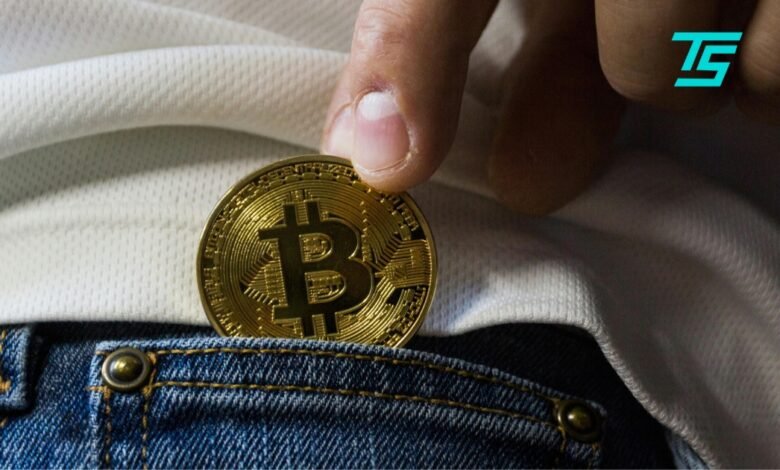Bitcoin 101: Is It Safe to Invest in Bitcoin?

What Is Bitcoin 101?
Bitcoin 101 is the perfect starting point for anyone looking to understand the fundamentals of Bitcoin, the world’s first decentralized digital currency. Unlike traditional currencies, Bitcoin is entirely digital and operates without a central authority like a government or bank. Launched in 2009 by an anonymous figure known as Satoshi Nakamoto, Bitcoin uses a technology called blockchain to ensure transparency, security, and decentralization. Its popularity has surged in recent years due to its potential for high returns and its status as a “store of value” in uncertain economic times.
A Brief History of Bitcoin
Bitcoin’s journey began in 2008 when its whitepaper, “Bitcoin: A Peer-to-Peer Electronic Cash System,” was published. This document outlined how Bitcoin would function using blockchain technology, promising a decentralized and trustless way of transferring value. In 2009, Nakamoto released the first Bitcoin software and mined the first Bitcoin block, known as the “genesis block.”
Initially, Bitcoin gained little attention, but it started attracting tech enthusiasts and early adopters who saw the potential of this new digital currency. By 2011, Bitcoin began to gain traction as a medium for online transactions, and its value started to grow. In 2013, Bitcoin hit the $1,000 mark for the first time, drawing more widespread interest. Since then, Bitcoin has experienced both massive price surges and steep declines, but its presence in global finance continues to expand.
How Does Bitcoin Work?
At the heart of Bitcoin 101 is the blockchain, which is a decentralized ledger that records all transactions across a network of computers. This ledger is immutable, meaning once a transaction is recorded, it cannot be changed or erased, ensuring transparency and security.
Bitcoin transactions are verified by a process called mining, where powerful computers solve complex mathematical puzzles to validate transactions. Miners are rewarded with newly minted bitcoins for their efforts. To use Bitcoin, you’ll need a wallet, a software or hardware tool that allows you to store and manage your bitcoins securely. Wallets can be either hot (connected to the internet) or cold (offline), with cold wallets being more secure for long-term storage.
When you send Bitcoin to someone, the transaction is broadcast to the network, where miners verify and record it on the blockchain. This process ensures that no one can double-spend or counterfeit Bitcoin.
Why People Are Investing in Bitcoin
People are flocking to Bitcoin for various reasons, making it a hot topic in the world of finance. One of the main draws is its decentralization. Unlike traditional currencies, which are controlled by central banks, Bitcoin is not subject to government policies or inflationary pressures. This appeals to those who want to hedge against economic instability.
Moreover, Bitcoin has gained attention as a high-return investment. Its price volatility offers opportunities for significant profits, although it also comes with the risk of steep losses. Bitcoin is also seen by some as a digital gold substitute, a way to store value over time without relying on traditional financial systems.
In addition, Bitcoin’s borderless nature allows anyone with an internet connection to participate in the global economy, making it an attractive option for people in countries with unstable currencies or restrictive financial systems.
Is Bitcoin a Safe Investment?
When discussing Bitcoin 101, one of the most common questions is whether Bitcoin is a safe investment. While Bitcoin presents exciting opportunities, it’s essential to understand the risks involved. The most significant risk is volatility. Bitcoin’s price has historically swung dramatically, leading to the possibility of significant financial gains or losses. Investors must be prepared for these fluctuations.
Another concern is regulation. While some countries have embraced Bitcoin, others have banned or heavily regulated it. The lack of consistent global regulation creates uncertainty for investors and can impact the price.
Security is another issue. While the Bitcoin network itself is secure, there have been incidents of exchanges being hacked, leading to the loss of funds. Additionally, scams, including Ponzi schemes and phishing attacks, are prevalent in the crypto space. Proper security measures, such as using hardware wallets and two-factor authentication, can help mitigate these risks.
Pros and Cons of Investing in Bitcoin
Pros of Investing in Bitcoin
- Decentralization: Bitcoin is not controlled by any government or institution, making it immune to government interference or inflationary policies.
- High Returns: Bitcoin has delivered impressive returns for early adopters, with the potential for future price increases.
- Hedge Against Inflation: As a limited supply asset (only 21 million bitcoins will ever be mined), Bitcoin is often viewed as a hedge against inflation and currency devaluation.
- Global Accessibility: Bitcoin can be sent and received anywhere in the world, making it an attractive option for international transactions.
Cons of Investing in Bitcoin
- Volatility: Bitcoin’s price can swing wildly, making it a risky investment for those looking for stability.
- Regulatory Uncertainty: The lack of global regulation makes it difficult to predict how governments will treat Bitcoin in the future.
- Security Risks: While Bitcoin’s network is secure, exchanges and wallets can be hacked, leading to potential losses.
- Lack of Consumer Protection: Unlike traditional banking systems, Bitcoin transactions are irreversible, and there is no central authority to turn to in case of a dispute.
Key Factors to Consider Before Investing
Before diving into Bitcoin investing, there are several factors to consider:
- Timing: Bitcoin’s price is highly volatile. Timing your investment correctly can make a significant difference, but predicting the right time to buy can be challenging.
- Market Research: Stay informed about the market trends and news that could impact Bitcoin’s price. Understanding the market will help you make more informed decisions.
- Wallet Security: Choose a secure wallet to store your bitcoins. Cold wallets are generally recommended for long-term storage.
- Investment Strategy: Decide on your investment strategy. Will you be holding for the long term, or do you plan to trade frequently? Having a clear strategy can help you stay focused during periods of market volatility.
How to Start Investing in Bitcoin
Getting started with Bitcoin is easier than ever. Here’s a simple guide to help you get started:
- Choose an Exchange: Select a reputable exchange, such as Coinbase, Binance, or Kraken, where you can buy and sell Bitcoin.
- Create an Account: Sign up on your chosen exchange and verify your identity.
- Set Up a Wallet: Choose a secure wallet for storing your Bitcoin. Hardware wallets like Ledger or Trezor are ideal for long-term storage.
- Buy Bitcoin: Once your account is set up and your wallet is ready, you can purchase Bitcoin using fiat currency (like USD, EUR, etc.).
- Secure Your Investment: Enable two-factor authentication and back up your wallet keys in case of loss or theft.
Common Myths and Misconceptions About Bitcoin
There are several misconceptions about Bitcoin that often deter people from investing. Let’s debunk a few:
- Bitcoin is anonymous: While Bitcoin offers a degree of privacy, all transactions are recorded on the public blockchain, meaning they can be traced back to you with the right tools.
- Bitcoin is illegal: Bitcoin is not illegal in most countries, although some governments have imposed restrictions or outright bans.
- Bitcoin is only for tech experts: While Bitcoin may seem complex, it’s user-friendly enough for anyone to start investing with a little research.
What Experts Say About Bitcoin’s Future
Experts have mixed opinions on the future of Bitcoin. Some see it as a revolutionary technology that could disrupt traditional finance and become a global reserve currency. Others caution that its volatility and regulatory uncertainty could prevent widespread adoption.
Notable figures like Michael Saylor and Jack Dorsey have expressed strong support for Bitcoin’s long-term potential, citing its value as a store of wealth and a hedge against inflation. However, analysts like Nouriel Roubini have criticized Bitcoin for its volatility and lack of intrinsic value.
Final Verdict: Should You Invest in Bitcoin?
So, should you invest in Bitcoin? The decision ultimately depends on your financial goals and risk tolerance. If you’re looking for a high-risk, high-reward investment with the potential for significant returns, Bitcoin could be a great option. However, due to its volatility and regulatory uncertainties, it’s important to do thorough research and only invest what you can afford to lose.
Bitcoin 101 provides the foundation for understanding this digital currency, but successful investing requires a well-thought-out strategy and careful consideration of the risks involved. Whether you choose to invest or not, it’s clear that Bitcoin will continue to play a pivotal role in the future of finance.



